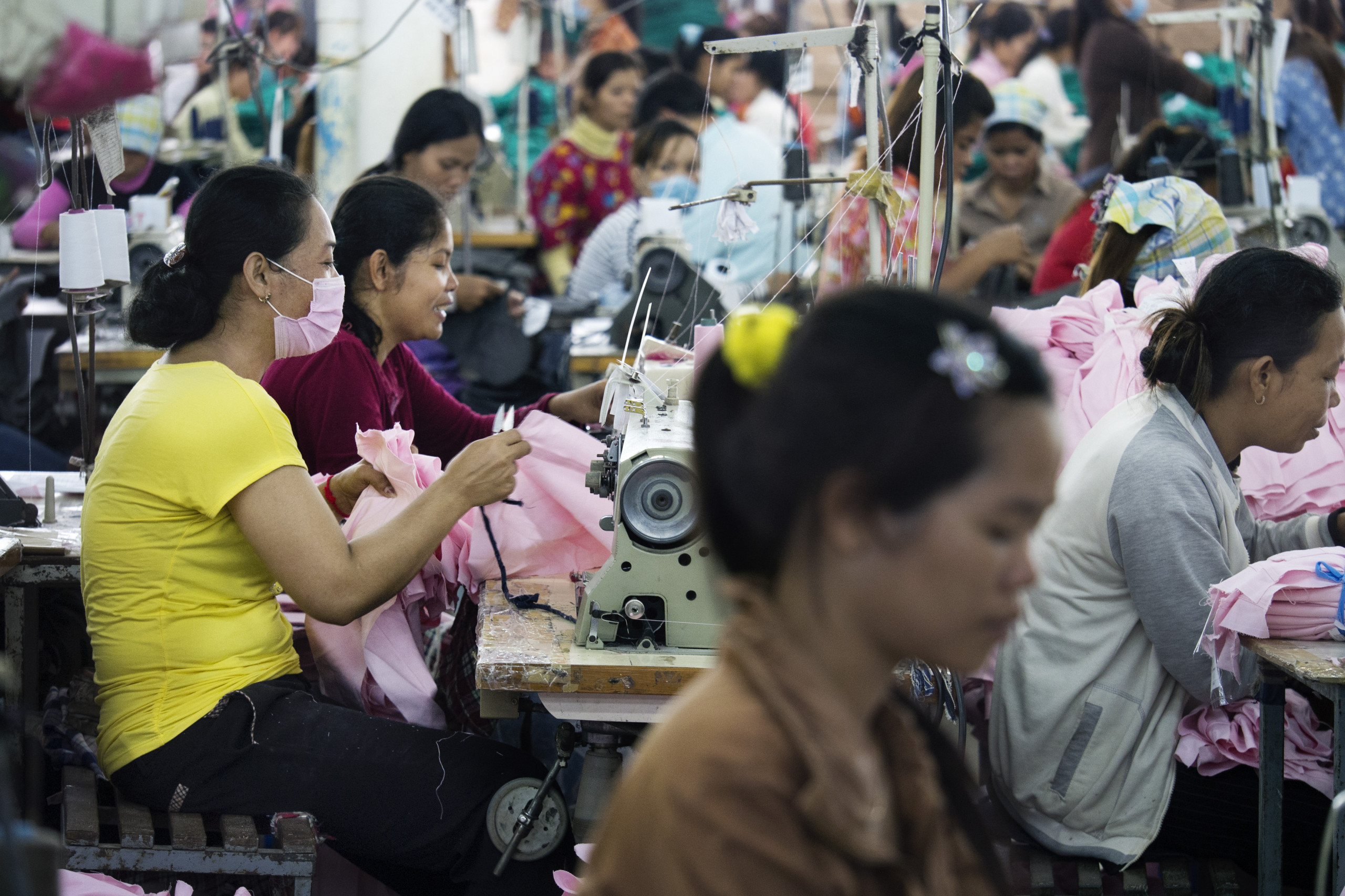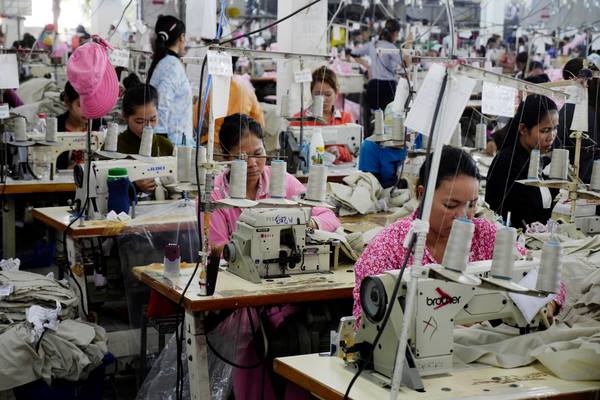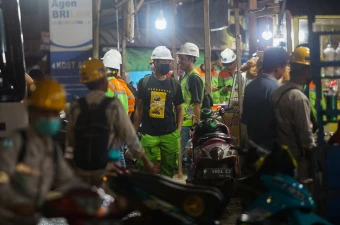In Cambodia, independent trade union work has become increasingly difficult in recent years due to obstacles introduced in new legislation. Under international pressure, the government made some improvements last December. ‘But those are still insufficient to guarantee real freedom of association for trade unions,’ says CNV Internationaal chair, Anneke Westerlaken. ‘Together with international clothing brands, Cambodian trade unions and international human rights organisations, we therefore support the international appeal to Prime Minister Hun Sen. According to our Cambodian trade union partner the obstacles to setting up a trade union in garment factories are getting higher and higher. Trade union leaders are regularly sacked or fall victim to harassment and violence.’

Dutch Agreement on Sustainable Garments and Textile supports international appeal
The letter is an initiative of the Fair Labor Association FLA and has been signed by many clothing brands that purchase garments in Cambodia:
- Adidas
- Burton
- Esprit
- Fruit of the Loom
- Kik Levi Strauss lululemon
- MEC
- Montane
- New Balance
- PVH
- Puma
- Ralph Lauren
- Salewa
- Schoffel
- VF Corporation
- Under Armour.
The Dutch IRBC Agreement on Sustainable Garments and Textile also supports the letter as a joint statement.
European Commission investigates situation Cambodia
However, due to the increasing violations of human rights and labor rights, both the European Union and the United States (USA) are increasing the pressure towards Cambodia.
In February 2019, the European Commission announced the possible suspension of the trade agreement if the Cambodian government continued to violate human rights. According to the so-called Everything but Arms Scheme (EBA), Cambodia, like other least developed countries, enjoys exemptions from import duties.
On 12 February, the EU decides whether the exemptions for import tariffs will indeed be partially lifted for certain products.
Labour rights seriously restricted
Cambodia has implemented a few minor improvements in the past year. Last December, for example, the Cambodian parliament approved a number of amendments to the trade union law that somewhat eased the demands on trade unions.
However, the right of workers to freedom of organisation and their right to collective bargaining are still being seriously curtailed. This means that the law is still in conflict with international labour standards that have been ratified also by Cambodia.
"The amended trade union law still imposes such strict requirements that it is hardly possible for our trade union partners to set up trade unions in factories and bargain collectively for workers."
‘Trade union leaders are also being criminalised,’ says Anneke Westerlaken. She continues: ‘There are several charges pending against trade union leaders. They are given less and less freedom to carry out their work.’
The garment industry is an important source of employment for Cambodia
The clothing industry is of great economic importance to Cambodia. Thanks to the EBA trade agreement, the sector has seen considerable growth and has become an even more important source of employment. However, there is extreme, often forced overtime and working conditions are unhealthy.
Factories are constantly seeking to make labour ever more flexible. More and more garment workers are being dismissed from their formal jobs, after which they can return to work in exactly the same factory as day labourers.

Factories threaten authorities with relocating their production to other countries
If the EU decides to suspend the EBA scheme it will have highly negative consequences for the Cambodian clothing industry, and therefore for Cambodian workers.
‘We are already getting signals from our trade union partners that apparel brands are considering moving their production to other countries,’ Ms Westerlaken says.
‘It is unfortunate that Cambodian textile workers are at risk of falling victim to agreements that have precisely been made to improve their situation.’
Freedom under pressure
The media and freedom of expression in general have been under pressure in Cambodia for years. In 2017, government pressure led to the suspension of the last independent newspaper. The opposition party was dissolved in the run-up to the 2018 elections. The government is also increasingly restricting labour rights.
Publication date 23 01 2020


